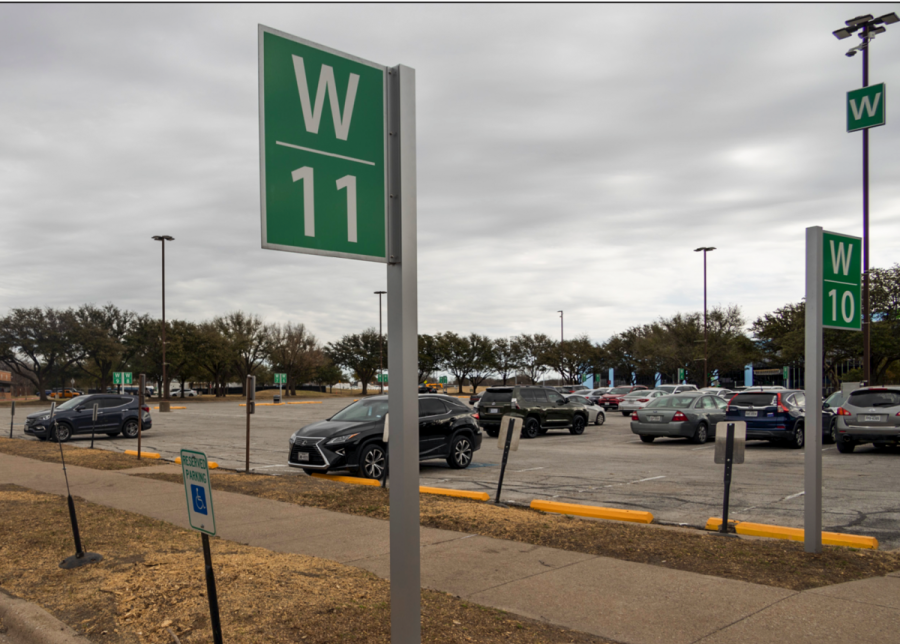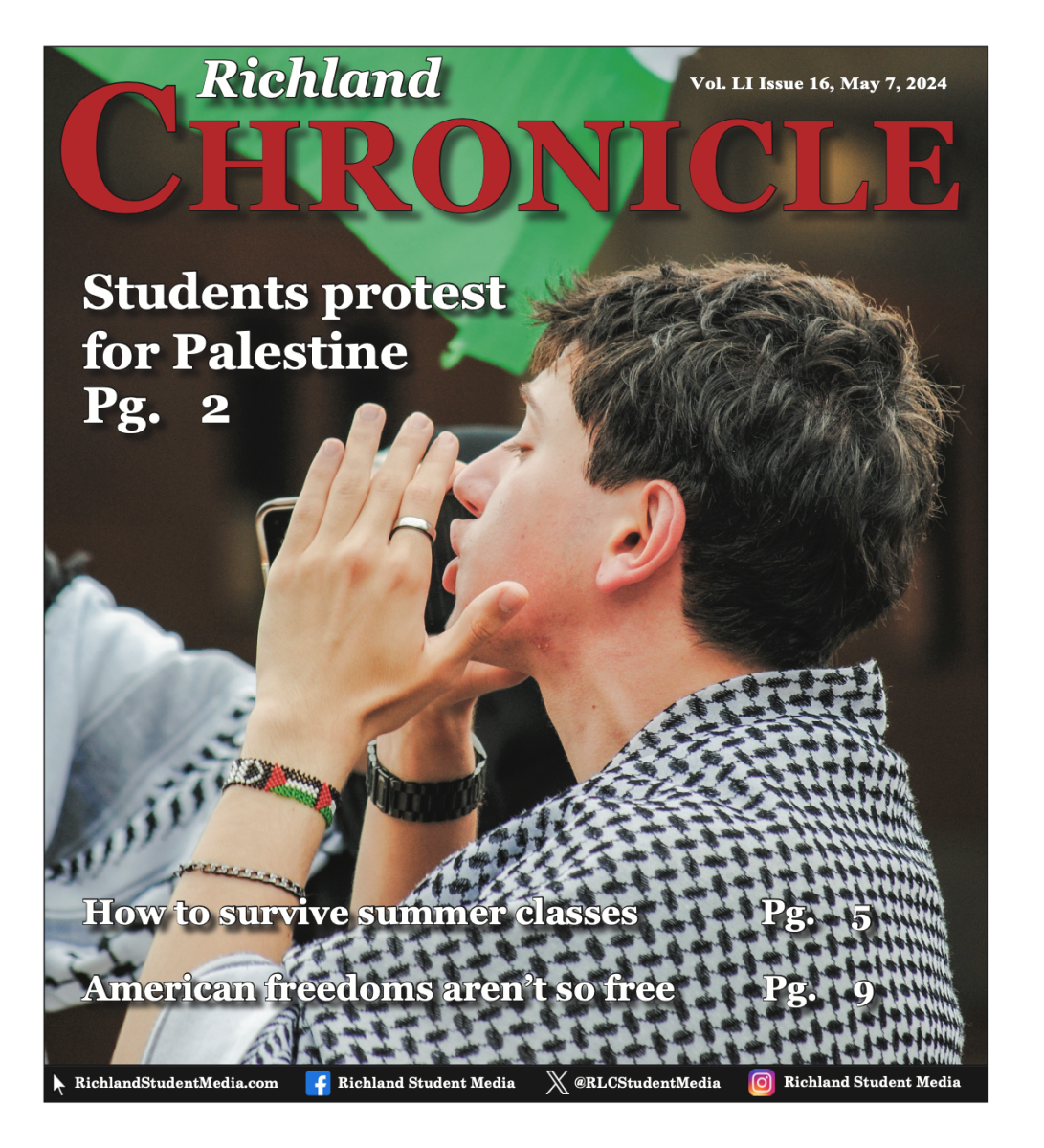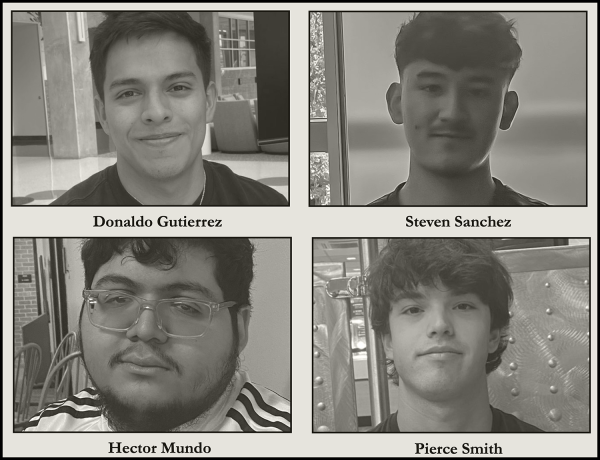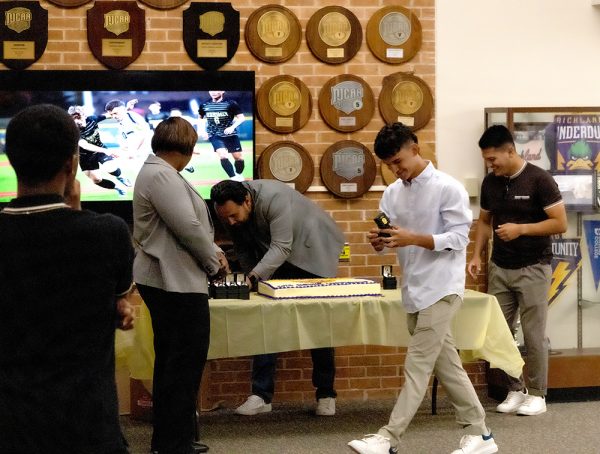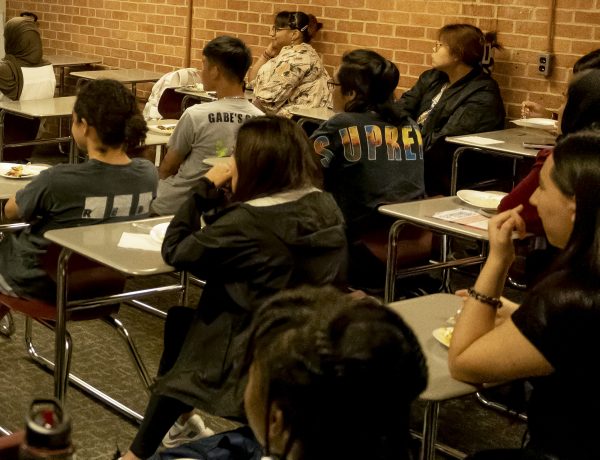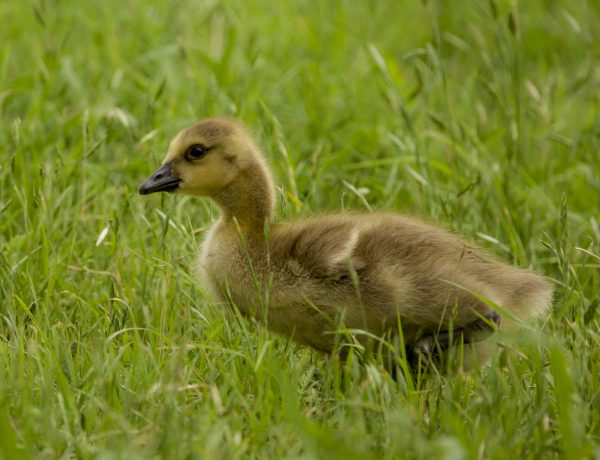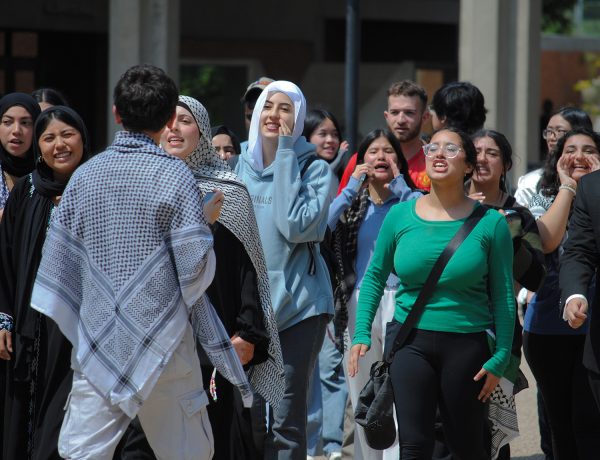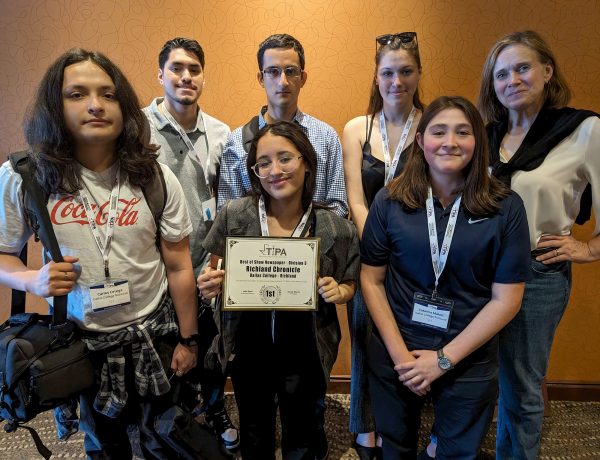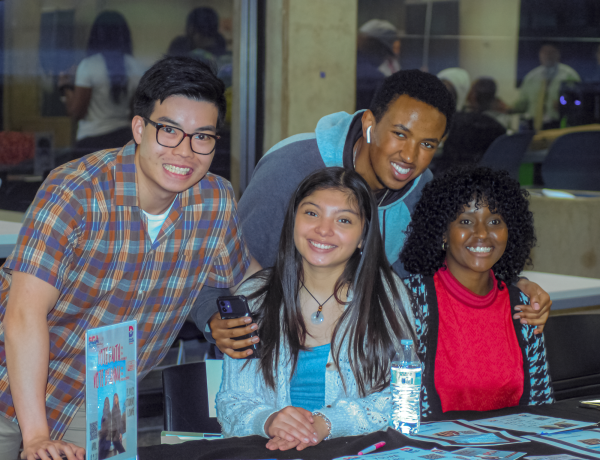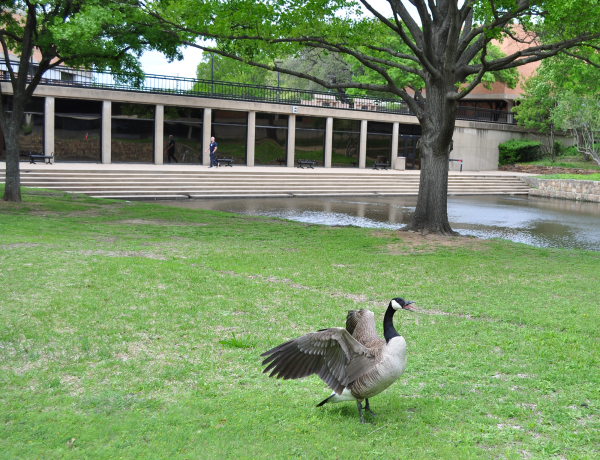Beetlemania: Richland’s trees under attack
January 30, 2023
During the winter break, it was necessary to remove and destroy all ash trees on campus due to infestation of invasive emerald ash borer beetles. The trees were in the parking lot W located in the east side of Richland campus.

The tree removal was necessary as a preventive measure to avoid the larva-hatching season of the bug, which runs from April to June. Although the initiative might seem extreme (Richland campus is known for being a green campus), it is was done to help contain the potential spread of the disease to other ash trees south of campus and throughout Texas.
After the Texas Tree Foundation held a conference here on campus, the Facilities Maintenance department pointed out the concern about the possible disease and asked a certified arborist to come to make the diagnosis and to make the appropriate recommendations; the tree removal was suggested immediately to avoid the possible weakening and falling of branches, according to Janet James, senior director, campus administration, Richland campus. Since the disease starts inside the trunk of an infected tree and spreads to the outside bark, it can go unnoticed until limbs fall and cause harm to pedestrians and parked cars surrounding the affected trees.
According to the website entnemdeot.ufl.edu, the emerald ash borer is a highly destructive wood-boring beetle that feeds on the phloem of ash trees.
“I don’t know which type of tree those will be yet, but there’ll be collective decision,” James said.
The replanting of the trees will happen during the annual Arbor Day celebration in April through Richland’s partnership with the Texas Trees Foundation and campus Tree Farm and certified arborist will determined the best new species for the area based on the environment, according to James.
“I found out that they decided to do it during the winter break, number one to avoid the larva. And then number two, nobody was here, and people love those trees. But we had a legitimate reason to take them out,” James said.
According to James, the commitment of the Richland campus to sustainability and the health of the planet remains a priority. She added that the soil at the site of the trees was not damaged by the beetles, therefore, there are plans to replace the trees in parking lot W with a different species of trees.

